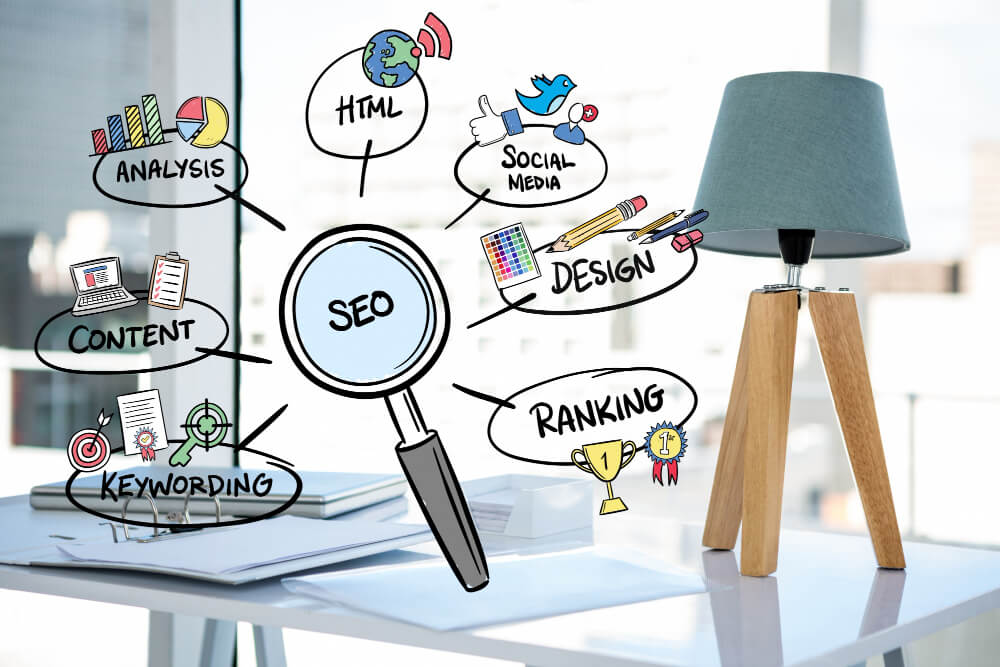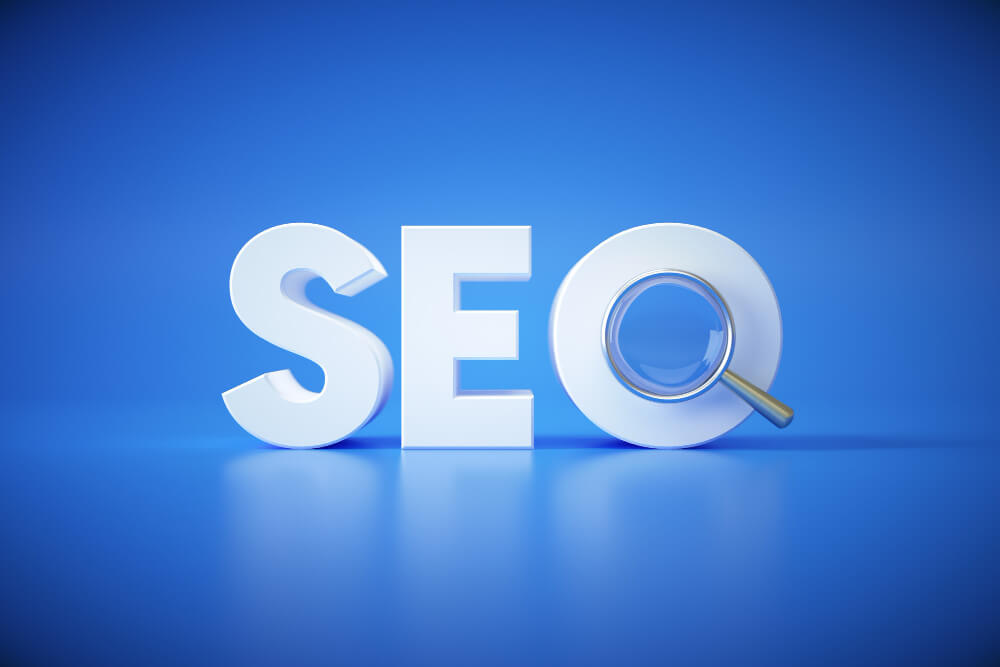Are you a small business owner or a digital marketer who wants to get the most out of your website? Are you curious about SEO and how it can help your business reach more customers? If so, then this blog post is for you! Learn about SEO and how it can help your website appear in search engine results.
What is SEO?
Search engine optimization, or SEO, is optimizing your website to make it easier for search engines like Google to find and rank it in their results pages. It involves changing your website’s content and structure to improve its visibility for relevant searches. This can include creating SEO-friendly content, improving page speed, using keywords effectively, and optimizing for local searches. With SEO, you can increase your website’s visibility and draw more traffic from search engine users looking for your offer. By following best practices and implementing strategies that work best for your specific goals, you can ensure that your website reaches more people looking for your offer.

How Does SEO Work?
Search engine optimization (SEO) improves a website’s visibility and ranking in search engine results. SEO helps websites to appear higher up in the search engine results list when users search for relevant keywords and phrases. SEO involves optimizing content, building links, and researching keywords to improve your website’s visibility. You can increase your site’s ranking and reach more potential customers by keyword research, backlinking, and optimizing titles and meta descriptions. SEO can be an ongoing process that requires regular updates to stay on top of the ever-changing algorithms used by search engines. With dedication and expertise, SEO can help bring more organic traffic to your site than any other form of digital marketing.
Why is SEO Important?
Search engine optimization, or SEO, is an important part of any online marketing strategy. SEO helps ensure your website is visible to potential customers searching for your services or products. Properly optimized websites allow businesses to reach more customers and increase online visibility.

Optimizing a website correctly can help it rank higher in search results and appear more often in relevant searches. This can lead to increased traffic, which leads to more sales and better brand recognition. Additionally, good SEO helps establish trust with customers as they see your business appearing in organic search results from reputable sources.
A well-optimized website can also help you build relationships with other businesses in your industry. By creating quality content that links back to other related sites, you can create valuable connections with influencers who may be able to share your content with their audiences.
SEO is also important for ensuring that your website is accessible to all users regardless of their device or web browser. Optimizing pages for mobile devices and ensuring compatibility across different browsers will ensure everyone has access to your site and can view it properly to get the best possible experience while browsing it.
In short, SEO is crucial because it makes your website more visible, which means more traffic and opportunities to convert prospects into customers. Investing time into optimizing your site will pay off in the long run as you continue generating traffic from organic searches over time through quality content creation and effective keyword usage.
What Are the Benefits of SEO?
Search engine optimization (SEO) is a key tool for any digital marketing strategy. SEO helps you increase visibility on search engine results pages and, as a result, drive more organic traffic to your website. SEO can also help you build trust and credibility with prospects and improve user experience. Here are some of the top benefits of SEO:

1. Increased Visibility: Optimizing your website for the right keywords and phrases will make it easier for search engines to find your website and display it in the top results. This will help increase visibility on SERPs, leading to more people visiting your website and engaging with your content.
2. Drive More Website Traffic: Optimizing your website for relevant keywords can generate higher-quality leads that will likely convert customers or subscribers. It also opens up opportunities for new audiences who may not have been aware of your business before seeing it in the search engine results pages (SERPs).
3. Improves Digital Marketing ROI: With an effective SEO strategy in place, you’ll be able to achieve better returns from all other digital marketing activities, such as email campaigns or social media marketing, because the traffic from those activities will be directed towards optimized pages that convert better than those without optimization.
4. Cost-Effectiveness – SEO is one of the most cost-effective marketing strategies because it targets users who are actively looking for products and services like yours while they’re already searching online rather than having to pay for ads to get them there, which may not always be cost-effective in the long run depending on how competitive the space is that you’re targeting with ads
5. Builds Trust & C
What Are the Different Types of SEO?
Search engine optimization (SEO) is optimizing your website to improve its ranking on Google SERPs for relevant terms and phrases. SEO is an important part of running a successful website, as it helps you ensure that your site can be found by potential customers and provides them with the best possible user experience. Several types of SEO can help your website rank higher in search engine results pages.

The most common types of SEO include technical SEO, on-page SEO, content SEO, off-page SEO, local SEO, mobile SEO, and eCommerce SEO. Technical SEO refers to optimizing the backend of your website for crawling and indexing by search engines such as Google and Bing. On-page SEO involves optimizing individual web pages for relevance to specific keywords or phrases related to your business. Content SEO focuses on creating quality content optimized for target keywords or phrases to improve rankings in organic searches. Off-page SEO refers to activities such as link building from other websites with similar topics or content as yours. Local SEO deals with optimizing your business’s presence for local searches by targeting geographic locations based on user queries. Mobile optimization involves improving how a website looks and functions when accessed via mobile devices such as smartphones and tablets. Lastly, eCommerce optimization ensures that your online store is optimized for product searches to attract customers and drive more sales conversions.
On-Page Optimization Techniques
On-page optimization (also known as on-site SEO) is optimizing web page content for search engines and users. It is an important part of any successful search engine optimization strategy. On-page optimization includes optimizing titles, meta descriptions, headings, internal link structure, URLs and content for specific keywords or phrases.

To maximize the visibility of a website in organic search engine results pages (SERPs), on-page optimization should be performed with keyword research and analysis in mind. This will ensure that pages are tailored to the terms people are searching for, thus increasing the chances of appearing at the top of SERPs.
Regarding titles, they should be descriptive yet concise while incorporating relevant target keywords or phrases. Meta descriptions should also include target keywords while summarizing what each page offers accurately and attractively so that users are encouraged to click through to your website instead of competitors’ websites.
Headings help provide context to readers by breaking up content into easily digestible sections and helping search engines better understand what each page is about. Internal link structure should also be optimized so that pages are linked together logically, and all links are working properly with no broken links. URLs should be clear and concise, using relevant words with hyphens instead of underscores where possible. Lastly, content should include relevant target keywords or phrases but not in a way that appears spammy or forced; it must flow naturally within the context so as not to confuse readers or turn them away from your website altogether due to poor readability.
Off-Page Optimization Techniques
Off-page optimization is an important part of any SEO strategy. It involves activities outside a website to improve its ranking in search engine results. These activities include link building, brand mentions, and social media marketing.

Link building is one of the most common off-page optimization techniques. This involves creating links from other websites to yours to increase the authority and trustworthiness of your website in the eyes of Google and other search engines. This can be done by submitting guest posts on relevant websites or creating relationships with other webmasters for mutual link exchanges.
Brand mentions are another effective off-page SEO technique that helps boost your website’s visibility online. Brand mentions involve people talking about your company or product on their websites or social media profiles, increasing the chances of their followers find out about you and potentially becoming customers.
Social media marketing is also a great way to increase your website’s off-page SEO score. By sharing content related to your business on popular social networks such as Facebook, Twitter, and Instagram, you can drive more traffic to your website and increase your business’s overall exposure. Additionally, if you have influential followers who share your content regularly, this will help boost your website’s rankings even further!
Finally, well-researched content can also help with off-page optimization as it attracts quality backlinks from other websites, further improving your rankings in search engine results pages (SERPs). Combined elements should give you a better chance at achieving higher rankings in SERPs for targeted keywords!
Local Search Engine Optimization Tactics
Local search engine optimization (SEO) tactics are the techniques used to help local businesses increase their visibility in local search results on Google. By optimizing their web pages with keywords, content, and other SEO strategies, businesses can help ensure they appear higher in the rankings when local customers search for relevant services. Additionally, businesses can use local SEO tactics to improve their presence when customers use Google Maps or other location-based searches. Local SEO can help create a more efficient customer experience and increase business leads and conversions.
Technical Website Optimizations for SEO
Technical website optimization for SEO is improving your website to help increase your ranking in search engine result pages (SERPs). This can include optimizing page speed, improving usability, and implementing internal linking. All of these improvements help search engines better crawl and index your site, making it easier for users to find you in organic searches. Optimizing page content, such as titles and meta descriptions, can also help improve a website’s visibility. Ultimately, proper technical website optimization ensures that your site is optimized for search engine bots, which helps them crawl and index all of the pages on your website more accurately. With the right technical optimizations, you can boost your SERP rankings and get more organic traffic to your site.

Measuring and Monitoring Your Performance
Measuring and monitoring your SEO performance is essential to improve your website’s search engine ranking. By tracking key metrics such as organic traffic, keyword research, and SERP rankings, you can understand how effective your optimization efforts have been and make any necessary adjustments.
Organic Traffic is a great metric for gauging the success of your SEO campaigns. It measures the number of visitors who have landed on your website through organic search results. Monitoring this metric over time allows you to assess the efficacy of your optimization tactics and make any necessary changes to increase visibility in search engine results pages (SERPs).


3 Responses